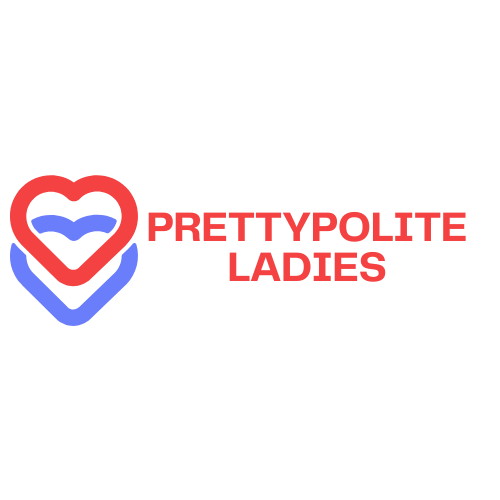The Best Fluffy Pancakes recipe you will fall in love with. Full of tips and tricks to help you make the best pancakes.

Conflict Resolution Activities: Transform Disagreements into Team Harmony
Conflict is as inevitable as that one friend who always shows up late to dinner. Whether in the workplace or at home, disagreements can pop up like a game of whack-a-mole. But fear not! Conflict resolution activities are here to save the day and transform those awkward moments into opportunities for growth and understanding.
Imagine turning a heated debate over who gets the last slice of pizza into a collaborative brainstorming session. With the right activities, conflicts can become stepping stones toward stronger relationships and better communication. From team-building exercises to role-playing scenarios, these activities not only lighten the mood but also equip individuals with the tools they need to tackle disagreements head-on. So, let’s dive into the world of conflict resolution and discover how to turn those fiery exchanges into moments of harmony.
Conflict Resolution Activities
Conflict resolution activities provide frameworks for effectively addressing disagreements. These strategies encourage communication and foster understanding.
Definition and Importance
Conflict resolution activities involve structured processes that help individuals or groups address disputes constructively. Such activities promote effective communication and encourage collaboration. Research confirms that these methods enhance problem-solving skills and strengthen relationships. By actively participating in these activities, individuals learn to navigate disagreements with empathy, leading to healthier interactions. Furthermore, resolving conflicts efficiently can prevent escalation and create a more positive environment.
Types of Conflict Resolution Activities
Various types of conflict resolution activities exist to cater to different settings and needs. Team-building exercises promote cooperation and improve group dynamics. Role-playing scenarios allow individuals to practice empathy by stepping into another person’s shoes. Mediation sessions provide a neutral space for discussing unresolved issues. Workshops offer skills training that equips participants with conflict management tools. These activities improve relationships and instill a greater understanding of differing perspectives.
Effective Strategies for Conflict Resolution

Effective conflict resolution hinges on strong communication and active listening. Both elements play crucial roles in turning conflicts into productive discussions.
Communication Skills
Communication skills encompass expressing thoughts clearly and understanding others. Clarity in speech allows individuals to convey their needs without escalating tensions. Furthermore, using open body language promotes trust and openness in conversations. Nonverbal cues, such as eye contact and gestures, reinforce verbal messages and create a more engaging dialogue. Empathy also plays a significant role, as recognizing another person’s feelings fosters understanding. Being assertive while respecting others encourages collaboration, helping parties find common ground.
Active Listening Techniques
Active listening techniques enhance understanding during discussions. One fundamental technique involves summarizing what others say, confirming comprehension and showing respect. Additionally, using reflective statements allows individuals to express acknowledgement of feelings. Pausing before responding gives time to process information thoroughly, which aids in thoughtful replies. Asking open-ended questions encourages deeper conversation and clarification. These techniques transform listening from a passive to an active process, promoting effective conflict resolution. When both parties feel heard, they’re more likely to reach agreements that satisfy everyone involved.
Popular Conflict Resolution Activities
Engaging in popular conflict resolution activities can significantly improve communication and collaboration among individuals or groups. These structured methods help facilitate constructive conversations and foster understanding.
Team Building Exercises
Team building exercises promote collaboration by encouraging individuals to work toward common objectives. Activities such as trust falls, problem-solving challenges, and group discussions create opportunities for team members to connect on a deeper level. Through these interactive experiences, participants learn to appreciate diverse viewpoints while developing problem-solving skills. Often, these exercises help break down barriers, leading to healthier workplace dynamics. Structured formats, such as workshops or outdoor activities, enhance these benefits, making them suitable for various environments.
Role-Playing Scenarios
Role-playing scenarios provide practical insights into different perspectives during conflicts. Participants assume various roles, allowing them to experience situations from another’s viewpoint. This immersive format fosters empathy and encourages open communication. By navigating conflicts through role-play, individuals practice responses in a safe space, refining their conflict resolution skills. Applying techniques in a controlled environment tends to boost confidence, equipping them for real-life situations. Workshops and training sessions that incorporate role-playing lead to better understanding and cooperation among team members.
Implementing Conflict Resolution Activities in the Workplace
Effective implementation of conflict resolution activities in the workplace enhances communication and collaboration among team members. Various strategies exist to incorporate these practices seamlessly into daily operations.
Training Programs
Training programs play a crucial role in developing employees’ conflict resolution skills. Workshops often focus on effective communication techniques, including listening and empathy. Participants engage in hands-on exercises that simulate real workplace conflicts. These programs can consist of both in-person and online formats, catering to various learning preferences. Organizations should prioritize regular training sessions to reinforce these skills over time. Tracking progress through assessments can demonstrate the effectiveness of the training efforts.
Creating a Positive Environment
Creating a positive environment fosters open communication and trust among team members. Encouraging an inclusive culture helps individuals feel comfortable expressing their thoughts and concerns. Managers should model conflict resolution skills, demonstrating how to approach disagreements constructively. Recognition of teamwork and collaboration can further motivate employees to work together harmoniously. Regular check-ins promote a supportive atmosphere where conflicts are addressed promptly. Establishing clear guidelines for respectful interactions aids in maintaining a focused and positive workplace culture.
Conclusion
Conflict resolution activities play a vital role in transforming disagreements into opportunities for growth. By fostering effective communication and empathy, these structured processes not only improve relationships but also enhance problem-solving skills. Implementing activities like team-building exercises and role-playing scenarios equips individuals with the tools needed to navigate conflicts constructively.
Creating an environment that encourages open dialogue and trust is essential for successful conflict resolution. With the right strategies and activities in place, teams can cultivate a culture of collaboration and understanding. Embracing conflict as a natural part of interactions leads to healthier relationships and a more harmonious atmosphere, whether at work or home.
